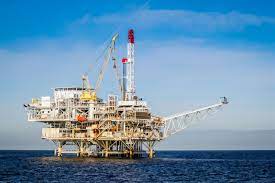As the focus of oil producers globally shifts to deep water projects which are envisaged to attract over N200billion in new investment this year, Nigeria, one of Africa’s biggest oil producers, has positioned itself to benefit from this investment
Nigeria has big plans to diversify its oil operations by developing new projects outside the Niger Delta in the north of the country.
After years of delays, Shell is going ahead with its Bonga North Project this year, to be followed by the $10 billion Bonga South West field in 2024. Bonga North is believed to hold as much as 525 million barrels of crude, which could support Nigeria’s goal of boosting production to pre-pandemic levels, having repeatedly failed to achieve OPEC quotas in recent months.
The offshore oil and gas (O&G) sector is set for the highest growth in a decade in the next two years, with $214 billion of new project investments lined up.
Rystad Energy research shows that annual greenfield capital expenditure (capex) will break the $100 billion threshold in 2023 and in 2024 – the first breach for two straight years since 2012 and 2013.
Nigeria is expecting an additional 400,000b/d from some mega projects on Prowe, Owowo, the Bonga North and Bonga Southwest if it is able to pull them through.
The Chief Executive Officer, Nigerian Upstream Petroleum Regulatory Commission (NUPRC), Gbenga Komolafe, disclosed this recently.
He said: “Our core focus is how we can get the mega projects like the Prowe, Bonga North, the Bonga South West Aparo, the Owowo to major projects with combined volume of about 400,000 barrels per day”.
He explained that following the approvals for Field Development Programmes (FDP) for some of the 2020 marginal field bid investors, the commission is optimistic of exceeding the OPEC quota.
He added: “We are very optimistic about attaining and surpassing our OPEC quota. He said Nigeria’s OPEC quota is now about 1.8 million barrels of oil per day. Currently, with the kinetic effort being deployed by the joint security forces and the NNPC and the regulator, as at now we have been able to attain 1.6mb/d in terms of our crude oil production;
“But having said that, like I said we are very optimistic as a commission that we have the capacity to attain and surpass our OPEC quota of the figures we just talked about through the intentional efforts that the commission is making: engaging the investors.”
The commission had on assumption of office inaugurated a committee to quickly brainstorm and bring in supplementary volumes to enhance the national oil production, he said.
He also said: “So we are engaging the operators to ensure that these projects come into fruition in real time basis. With all this happening and the current FDPs that have been approved we are very much optimistic that we will achieve and surpass our OPEC quota.”
As global fossil fuel demand remains strong and countries look for carbon-friendly production sources, offshore is back in the spotlight. Offshore activity is expected to account for 68% of all sanctioned conventional hydrocarbons in 2023 and 2024, up from 40% between 2015-2018. Comparisons against this period are prudent as it predates the Covid-19 pandemic and related oil price crash. In terms of total project count, offshore developments will make up almost half of all sanctioned projects in the next two years, up from just 29% from 2015-2018.
These new investments will be a boon for the offshore services market, with supply chain spending to grow 16% in 2023 and 2024 , a decade-high year-on-year increase of $21 billion. Offshore rigs, vessels, subsea and floating production storage and offloading (FPSO) activity are all set to flourish.

























